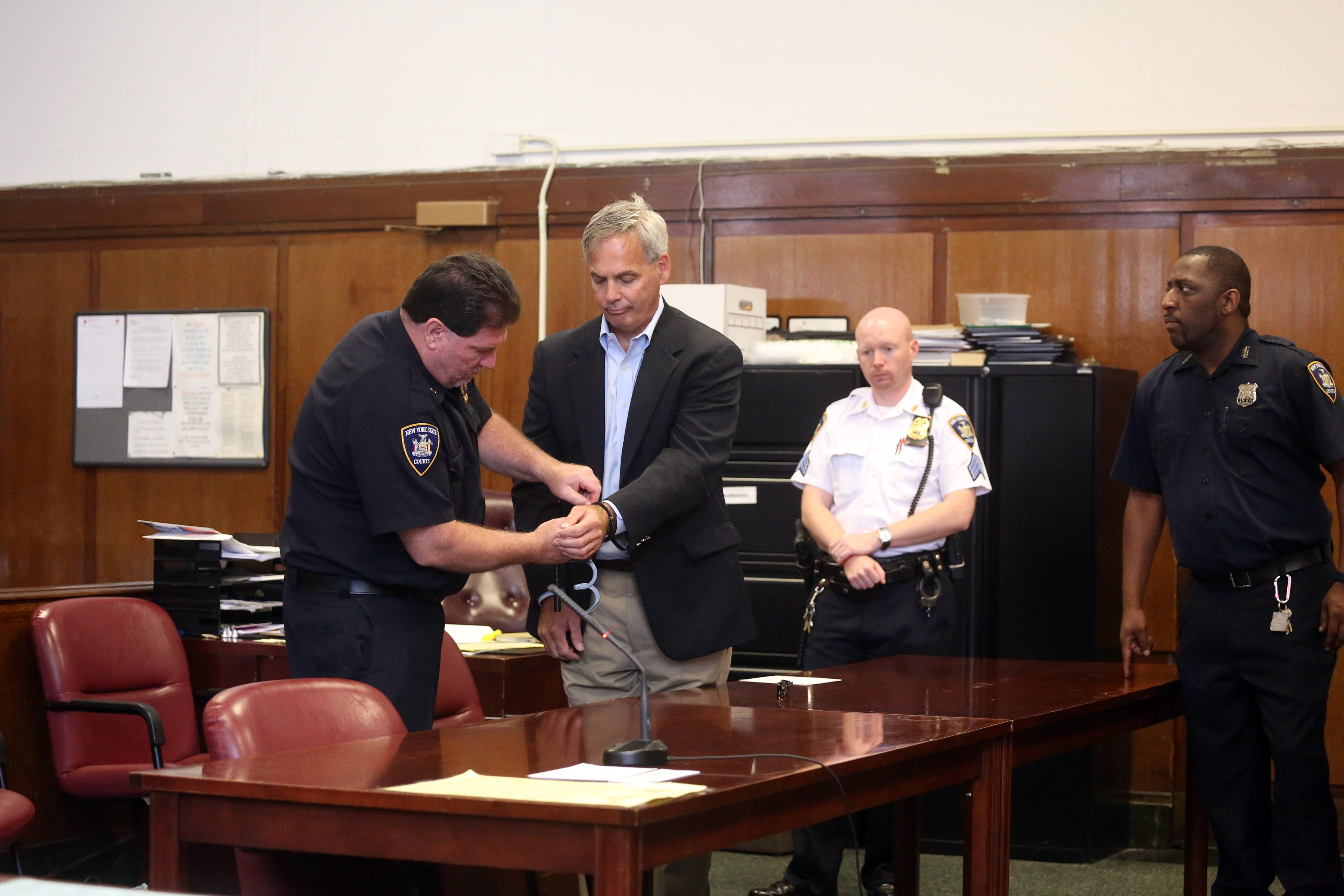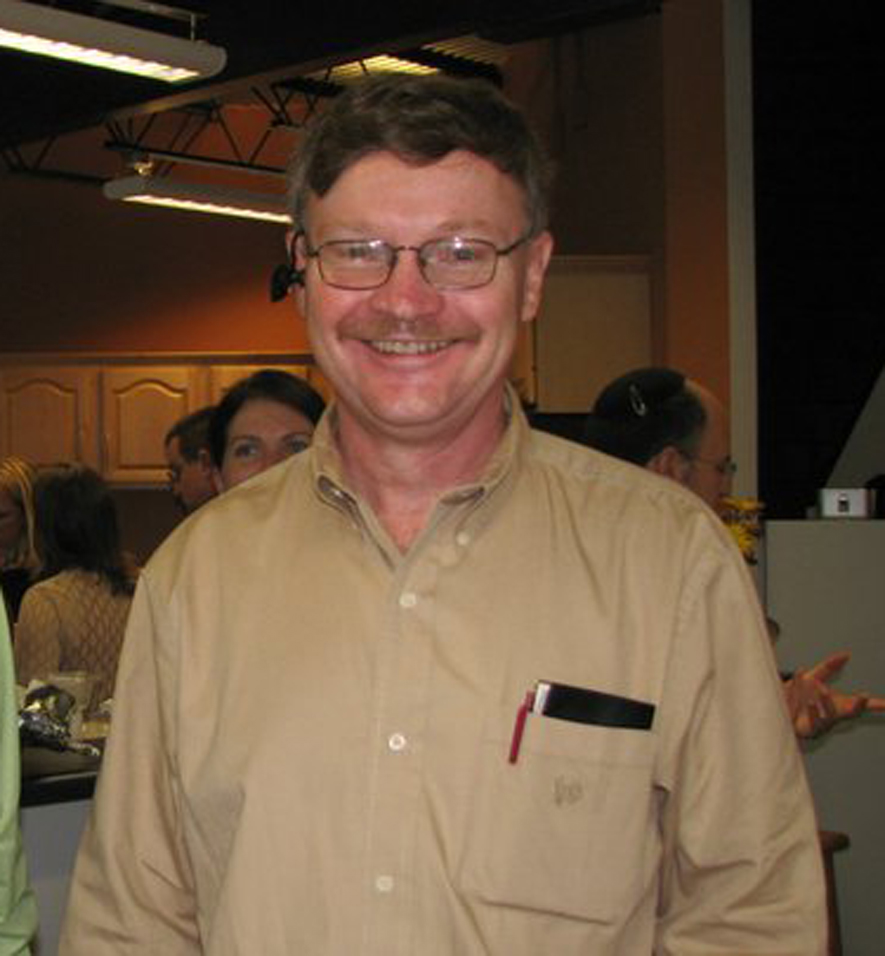Chattanooga payday lending king's syndicate picked apart by New York prosecutors
Thursday, August 14, 2014
CRIMINAL DEFENDANTS IN PAYDAY SYNDICATE• Carey Vaughn Brown -- founder of payday empire• Ronald Beaver -- chief operating officer• Joanna Temple -- legal advisorPAYDAY SYNDICATE DEFENDANTS• Account Pros• ACH Federal• Area 203• Cloudswell/Terenine/Basenine• Credit Payment Services• Credit Protection Depot• Envision Management Group• Millennium Financial Concepts• MyCashNow.com• PaydayMax.com• DiscountAdvances.com• Owl's Nest• Scenic City Legal Group• Support SevenSource: Supreme Court of New YorkCHARGES AGAINST DEFENDANTS• Conspiracy in the fourth degree, one count, a class E felony• Criminal usury in the first degree, 38 counts, a class C felonySource: District attorney of New York County
The cash was just a means to an end. Former used car dealer Carey Vaughn Brown wanted to save souls, and money was the easiest way to reach the world's downtrodden.
But it was the manner in which he made his money -- $150 million in loan fees and interest in 2012 alone -- that brought the Chattanooga payday lending king to his knees and ensnared two of his closest associates and a dozen of his now-shuttered shell companies in what New York state prosecutors call a criminal conspiracy.
Brown, along with attorney Joanna Temple and chief operating officer Ron Beaver, each face 38 counts of criminal usury and one count of conspiracy for what Manhattan District Attorney Cyrus Vance called "exploitative practices -- including exorbitant interest rates and automatic payments from borrowers' bank accounts," that the prosecutor claimed are "sadly typical of this industry as a whole."
The loans made by MyCashNow.com, PayDayMax.com and DiscountAdvances.com often carried annual interest rates of 350 percent to 650 percent per year, and sometimes more than 1,000 percent annual percentage rates, drawing some complaints from consumers who alerted New York state officials to the syndicate's existence.
Investigators found that in 2012 alone, more than $500 million cycled through a syndicate of more than a dozen companies that conspired to market, make and collect on payday loans across the United States, while the companies knowingly violated usury laws in New York and other states.
The crackdown on Brown's defunct business are part of a broader battle being fought by state and federal officials throughout the country to combat increasingly creative methods by payday lenders to sidestep laws that restrict interest rates. Such methods include creating companies on Indian reservations, remote tropical islands and even in Canada, as well as inventing layers of shell companies to obscure their common ownership and operation.
"I think the bigger thing that's going on is this general increasing concern about the harms of the payday loan debt trap, no matter if they're offered in a store or online," said Diane Standaert, legislative counsel for the Center for Responsible Lending.
Until prosecutors cracked down on his methods, Brown's syndicate routinely used the legal system to mount its own attacks on employees who questioned Brown's methods. Workers were regularly required to sign multiple non-disclosure, non-compete and non-disparagement agreements that carried stiff, vigorously-enforced penalties.
Brown's legal team claimed that his scheme was immune from state law because the conglomerate operated over the Internet and, on paper at least, from foreign shores. Those claims by Temple -- which prosecutors are now saying was "false advice" -- flew in the face of warnings from New York officials, as well as cease-and-desist orders from other state attorneys general.
Brown, Temple and Beaver plan to contest New York's charges. Beaver pleaded not guilty on Monday, Brown pleaded not guilty on Tuesday and an attorney for Temple, who will be arraigned on Thursday, called her client "a former prosecutor herself, a former judge and a well-respected member of the legal community."
"We believe the advice she gave here is legally correct, entirely appropriate, not in violation of New York's laws or any laws," said attorney Priya Chaudhry.
In fact, the "false advice" portion of the indictment is a fairly unusual legal concept, designed to remove the defense that Brown was merely acting on the advice of his attorney, the defendants say.
By indicting Temple and seizing what would typically be deemed privileged correspondence between an attorney and her client, prosecutors may be suggesting that her role was central to any conspiracy, and that she was much more than a legal advisor.
Behind the scenes, the three defendants struggled over whether to obey New York laws and cease making loans far in excess of the legal maximum of 25 percent per year, given the risks of going toe to toe with the powerful prosecutors who police the country's most important financial center.
According to documents obtained by New York investigators, the trio met in 2009 to "decide how to proceed in sensitive states," including New York.
Temple advised Brown's companies to "continue to handle collections in New York with kid gloves and we'll see where this goes," though she fretted on multiple occasions about whether prosecutors would be able to ultimately connect the dots back to Brown.
She advised letting one borrower off the hook who had complained to the New York State Attorney General because there was "no need to tweak anyone's nose in a case where [we] got most of the money back."
In another case, Temple advised the others to have no further contact with one borrower because, "there are two complaints right now with the attorney general of New York for MyCashNow ... being handled by two different attorneys so they haven't clued in yet."
But eventually, they did.
Brown's business model was simple: Consumers would access one of Brown's websites, enter their bank account information, and with the click of a button a small loan would pop into their checking account. When the loan came due, usually every two weeks, Brown's companies would automatically withdraw the required fees.
With the help of Temple and Beaver, Brown created a network of seemingly separate shell companies based in Bermuda, Canada and elsewhere that in reality operated as one unit to avoid state regulations and taxes.
The tangled web of relationships that tied his businesses together, which a Times Free Press investigation unveiled in 2011, flummoxed state prosecutors for years.
In Tennessee, despite being made aware in 2011 that Brown was charging payday loan fees in excess of the legal limit, neither the Tennessee Department of Financial Institutions nor Attorney General Bob Cooper ever took any public action to censure Brown.
Brown worked to rehabilitate his image in 2012, pledging to give $1 billion away through his Covenant Values foundation to fight teen pregnancy, feed the homeless and care for AIDS victims. He supported the Chattanooga Area Chamber of Commerce, invested in local schools and fixed up distressed homes.
He worked directly with mainline Christian charities such as Focus on the Family, Precept Ministries and the Dawson McAllister Foundation. He appeared publicly with well-known philanthropist Hugh O. Maclellan, served on the board of Tennessee Temple University and personally traveled to help orphans in Africa.
His websites were well-designed, easy to use, and popular with consumers. Searches by reporters turned up few complaints in Tennessee, and many customers expressed displeasure when he was forced by banks under pressure from New York regulators to shut down in 2013.
Contact staff writer Ellis Smith at 423-757-6315 or esmith@timesfreepress.com with tips and documents.


